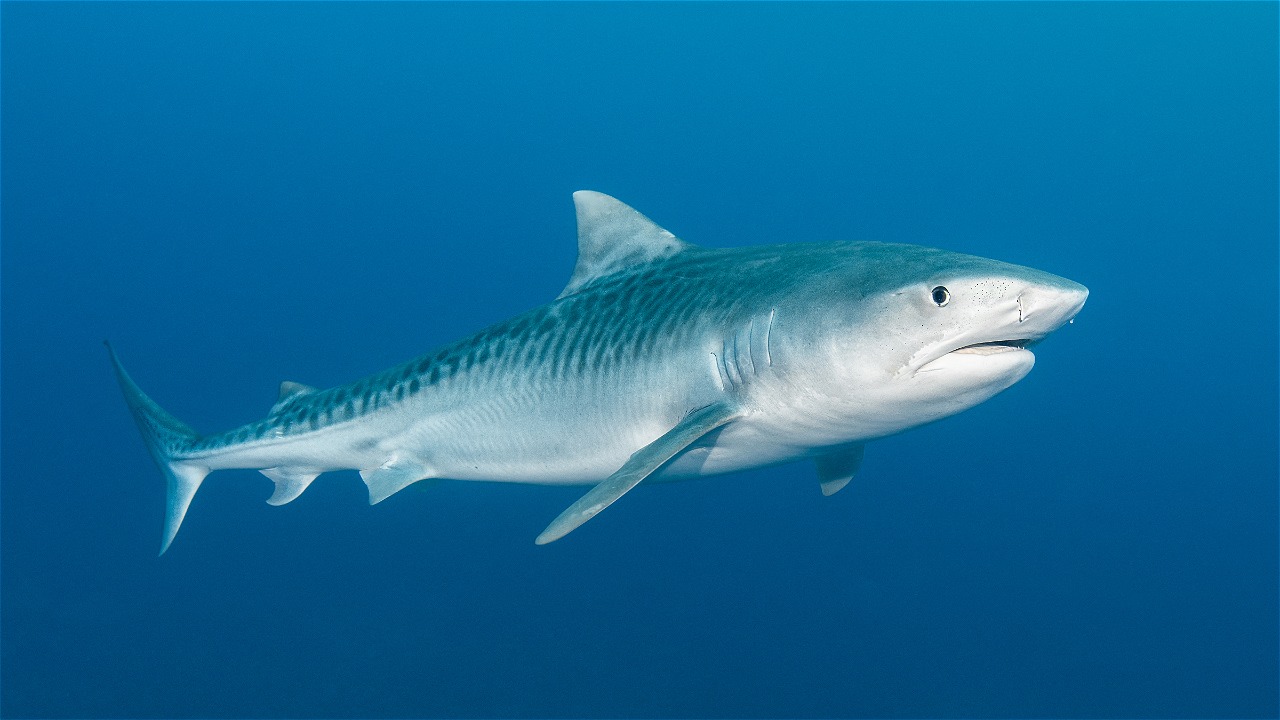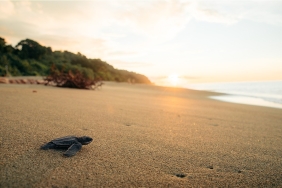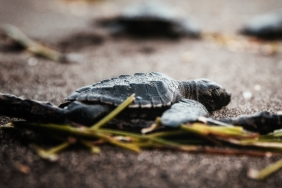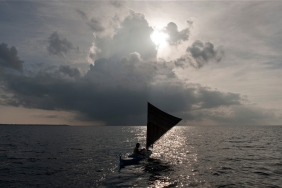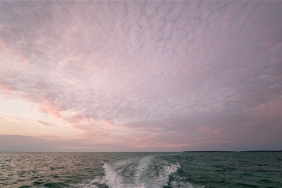SAVING KOMODO NATIONAL PARK SHARKS AND RAYS WITH A WASTE COOPERATIVE
By: Susilo Wati (Field Facilitator for Waste Management, WWF-Indonesia) and Jensi Sartin (Site Coordinator Komodo MPA, WWF-Indonesia)
"It is better to live from waste, than to live as waste," is the principle of Thomas Aquino, Chairman of KSU (Koperasi Serba Usaha) Sampah Komodo. In this national park, which is championed as the spearhead of national tourism according to the National Tourism Strategic Area, waste is indeed one of the main polemics.
The hope of accelerating the development of Komodo National Park (TN) on the western tip of Flores Island cannot be separated from the production of waste which reaches 13 tons per month. Whether it comes from households, or industry.
This number is expected to continue to increase, given the growing development trend. If left without a solution, waste will become a big scourge for the breath of tourism, economy, and public health in Labuan Bajo, Komodo.
This situation prompted the birth of KSU Sampah Komodo, which was driven by several Labuan Bajo residents who care and want to be a solution to the waste problem. Inaugurated in 2015 with the support of assistance from WWF-Indonesia, this cooperative continues to move to clean up Labuan Bajo through the provision of transportation services, sorting, recycling, and shipping or selling garbage from Labuan Bajo.
"If the waste problem in Labuan Bajo is not addressed, Komodo National Park - and the shark and manta tourism that is its main attraction - will be under great threat," says Thomas Aquino - known as Om Tos, who heads the cooperative. "We choose not to stay idle, we choose to work and be the solution through KSU Sampah Komodo." he concluded.
KSU Sampah Komodo initiated a waste management education movement through the 3R (Reduce-Reuce-Recycle) campaign. The strategic step taken by this cooperative is to impose economic incentives in managing waste through transportation services, recycling waste into valuable products, and waste savings.
KSU Sampah Komodo also emphasizes the importance of sorting waste directly at the source, and opens a waste bank membership for residents who want to manage their waste. "With an economic incentive to manage waste, residents will not only care more, but can be part of the waste solution itself," said Ibu Bekti, secretary of KSU Sampah Komodo, optimistically.
Currently, KSU Sampah Komodo continues to expand its membership to strengthen business capital. The Vice Regent of West Manggarai, Maria Geong, has also signed up to be one of the cooperative members when she visited KSU Sampah Komodo's house in Condereng, Wae Kelambu Village, Komodo Sub-district
Equipped with two three-wheeled motorbikes to transport waste, a manual waste press machine, and a manual shredding machine, KSU Sampah Komodo continues to work with minimal resources - for maximum impact in Labuan Bajo.
"This manual equipment requires us to work harder. Because with the volume and spread of existing waste sources, we have to use human labor," said Frans who is responsible for the advanced waste process.
"If we have hydraulic waste presses and larger transportation equipment, our work will be more effective. Our hard work needs more support so that we can together enjoy a clean Labuan Bajo and a sustainable Komodo National Park," Frans continued.
Irene Reynolds, one of WWF-Indonesia's suporters from Switzerland who recently (25/2) visited the KSU House was very enthusiastic about the commitment of the management and members of KSU Sampah Komodo.
"I really hope, this cooperative succeeds in making Labuan Bajo much cleaner," Irene explained during her visit - as optimistic as we all are.

